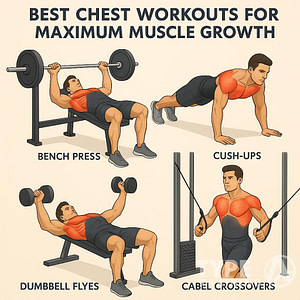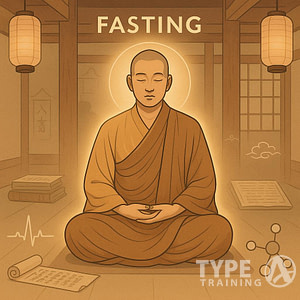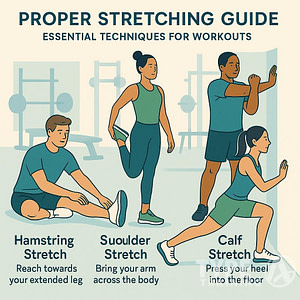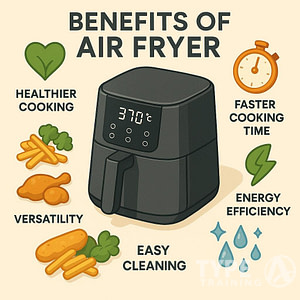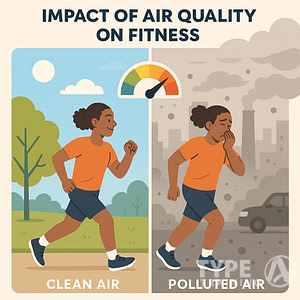When it comes to keeping kids active and healthy, finding the right personal trainer can make all the difference. Personal trainers for kids offer tailored exercise routines, support, and motivation to help children stay fit and active. But what should you look for in a kids’ personal trainer?
First and foremost, it’s important to understand the role of a personal trainer for kids. They’re not just there to help children build muscle or lose weight – they’re also there to teach kids about the benefits of exercise, help them develop healthy habits, and make fitness fun. A good personal trainer for children should have experience working with kids, be patient and have a sense of humor, and create training sessions that are tailored to the child’s interests and abilities.
So, what qualifications should you look for in a kids’ personal trainer? It’s important to make sure that any trainer you work with has the necessary certifications and insurance, and that they’ve passed all required background checks. Additionally, you’ll want to find a trainer who has experience working with children of your child’s age and fitness level, and who can provide references and testimonials from other parents.
Key Takeaways
- Look for a personal trainer who has experience working with children and can make fitness fun.
- Make sure any trainer you work with has the necessary certifications, insurance, and background checks.
- Find a trainer who has experience working with children of your child’s age and fitness level, and who can provide references and testimonials from other parents.
Understanding the Role of a Kids’ Personal Trainer
Popular posts:
When it comes to the health and fitness of your child, hiring a personal trainer can be a great investment. A personal trainer can help your child develop a fitness routine, stay motivated, and be held accountable for their progress. In this section, we will explore the responsibilities of a personal trainer and the benefits of personal training for kids.
Responsibilities of a Personal Trainer
The role of a personal trainer is to demonstrate and maintain a working knowledge of human anatomy and the concepts of functional exercise, basic nutritional needs, and fundamental principles of exercise science. When it comes to working with kids, a personal trainer should also have experience in child development and be able to create a safe and effective workout plan for children.
Additionally, a personal trainer should be able to motivate your child and keep them engaged in their fitness routine. They should also be able to provide feedback and make adjustments to the workout plan as necessary. Finally, a personal trainer should be able to hold your child accountable for their progress and help them set and achieve realistic fitness goals.
Benefits of Personal Training for Kids
Personal training can have many benefits for kids. First and foremost, it can help them develop healthy habits that will last a lifetime. It can also help them build strength, improve their endurance, and increase their flexibility. Personal training can also be a great way to improve self-esteem and confidence in kids.
In addition to the physical benefits, personal training can also be a great way to improve mental health. Exercise has been shown to reduce stress and anxiety in both children and adults. By providing a structured fitness routine, personal training can also help kids develop a sense of routine and discipline.
Overall, a personal trainer can be a valuable investment in your child’s health and fitness. By understanding the role of a personal trainer and the benefits of personal training for kids, you can make an informed decision about whether or not personal training is right for your child.
Qualifications to Look for in a Kids’ Personal Trainer
When it comes to finding a personal trainer for your child, it is essential to ensure that the trainer has the necessary qualifications and expertise to work with children. Here are some of the qualifications to look for in a kids’ personal trainer:
Education and Certification
A certified personal trainer with a degree in exercise science or kinesiology can be an excellent choice for a kids’ personal trainer. These degrees provide a solid foundation in the science of exercise and movement, and trainers with these qualifications will have a deeper understanding of how the body works.
In addition to a degree, look for certifications from reputable organizations such as the National Strength and Conditioning Association (NSCA) or the American College of Sports Medicine (ACSM). These certifications ensure that the trainer has passed rigorous exams and has met specific requirements for education and experience.
Experience and Expertise
Experience is essential when it comes to working with kids. A trainer who has worked with children before will understand how to motivate and engage them. Look for a trainer who has experience working with children of your child’s age group and has a track record of success.
Expertise in specific areas, such as sports performance or injury prevention, can also be valuable. If your child has a specific goal or needs, such as improving their soccer skills or rehabilitating from an injury, look for a trainer with experience in those areas.
Knowledge of Anatomy and Physiology
A good kids’ personal trainer should have a solid understanding of anatomy and physiology. They should be able to explain how exercises affect the body and how to perform them correctly to avoid injury. Look for a trainer who can explain the benefits and risks of each exercise and can modify them to meet your child’s needs.
In conclusion, when looking for a personal trainer for your child, make sure to check their education, certification, experience, expertise, and knowledge of anatomy and physiology. By doing so, you can ensure that your child is working with a qualified and knowledgeable trainer who can help them achieve their fitness goals safely and effectively.
Safety Considerations
Ensuring the safety of your child during personal training sessions should be a top priority. Here are some safety considerations to keep in mind when selecting a personal trainer for your child.
Injury Prevention
When selecting a personal trainer for your child, it is important to choose someone who prioritizes injury prevention. A good personal trainer should have experience working with children and should be knowledgeable about the limitations and safety considerations associated with training young athletes. They should also be able to create a training program that is tailored to your child’s unique needs and abilities.
CPR and First Aid Certification
Accidents can happen, even with the best injury prevention strategies in place. That’s why it’s important to choose a personal trainer who is CPR and first aid certified. In the event of an emergency, your child’s personal trainer should be able to administer basic first aid and perform CPR if necessary.
Liability Insurance
Finally, it’s important to choose a personal trainer who has liability insurance. Liability insurance protects both you and the personal trainer in the event that your child is injured during a training session. Make sure to ask potential personal trainers about their liability insurance coverage before hiring them.
By keeping these safety considerations in mind, you can help ensure that your child has a safe and productive personal training experience.
Training Approach
When choosing a personal trainer for your child, it is important to consider their training approach. Here are some key sub-sections to consider:
Setting Fitness Goals
A good personal trainer for kids should be able to help your child set realistic fitness goals based on their age, interests, and abilities. They should work with your child to identify areas where they want to improve and create a plan to help them achieve those goals.
Creating a Customized Exercise Program
A customized exercise program is essential for a child’s success in their fitness journey. A personal trainer should create a program that is tailored to your child’s needs, abilities, and interests. The program should be challenging but not overwhelming and should include a variety of exercises to keep your child engaged.
Coaching Style
The coaching style of a personal trainer can make a big difference in your child’s experience. A good coach should be patient, supportive, and encouraging. They should be able to adapt their coaching style to your child’s learning style and be able to provide constructive feedback to help your child improve.
Motivation
Motivation is key to keeping your child engaged and committed to their fitness program. A good personal trainer should be able to motivate your child and keep them excited about their workouts. They should be able to celebrate your child’s successes and help them overcome any setbacks.
Overall, when looking for a personal trainer for your child, it is important to find someone who can create a customized program that is tailored to your child’s needs and interests. They should be able to motivate and encourage your child while providing constructive feedback and support. With the right trainer, your child can achieve their fitness goals and develop healthy habits that will last a lifetime.
Practical Aspects
When looking for a personal trainer for kids, it’s important to consider practical aspects such as scheduling and availability, fees and payment structure, and facilities and equipment. Here are some things to keep in mind:
Scheduling and Availability
Before hiring a personal trainer for your child, make sure to discuss scheduling and availability. Determine if the trainer is available during the times that work best for your child, and if they are willing to work around your child’s school schedule and extracurricular activities. It’s also important to find out if the trainer is flexible in case you need to reschedule or cancel a session.
Fees and Payment Structure
Personal training fees can vary widely, so it’s important to discuss fees and payment structure with the trainer before hiring them. Some trainers charge by the hour, while others offer packages that include a certain number of sessions. Make sure to ask about any additional fees or charges, such as gym membership fees or equipment rental fees. It’s also important to discuss payment options and whether the trainer accepts credit cards or offers payment plans.
Facilities and Equipment
When choosing a personal trainer for your child, it’s important to consider the facilities and equipment they have available. Find out if the trainer works out of a gym or fitness center, or if they offer in-home training. If the trainer works out of a gym, make sure to check out the facilities and equipment to ensure they are safe and appropriate for your child’s age and fitness level. It’s also important to find out if the trainer has any specialized equipment or tools they use in their training sessions.
Overall, when looking for a personal trainer for your child, it’s important to consider practical aspects such as scheduling and availability, fees and payment structure, and facilities and equipment. By taking the time to do your research and ask the right questions, you can find a trainer who is a good fit for your child’s needs and goals.
Virtual vs In-Person Training
When it comes to personal training for kids, one of the first decisions you’ll need to make is whether to go with virtual or in-person training. Each option has its pros and cons, so it’s important to consider what will work best for your child’s needs.
Online Personal Training
Online personal training, also known as virtual personal training, is becoming increasingly popular. This type of training allows your child to work with a personal trainer from the comfort of your own home. Online personal training can be more affordable than in-person training, and it also offers more flexibility in terms of scheduling.
However, there are some downsides to online personal training. One of the biggest challenges is that the trainer is not physically present to correct form or provide hands-on assistance. This can make it difficult for some kids to learn proper technique. Additionally, some kids may struggle with staying motivated when working out alone.
In-Person Training
In-person training is the more traditional option. This type of training involves working with a personal trainer in a gym or studio setting. In-person training allows for more hands-on instruction and immediate feedback, which can be beneficial for kids who are just starting out with exercise.
One of the downsides to in-person training is that it can be more expensive than online training. Additionally, scheduling can be more challenging, especially if you have a busy schedule.
Ultimately, the decision between online and in-person training will depend on your child’s needs and preferences. If your child is self-motivated and doesn’t need as much hands-on assistance, online training may be a good option. However, if your child is just starting out with exercise or needs more personalized instruction, in-person training may be the way to go.
Finalizing the Decision
Once you have narrowed down your list of potential personal trainers for your child, it’s time to finalize the decision. This can be a daunting task, but there are a few key steps you can take to ensure you make the right choice.
Checking References and Recommendations
One of the best ways to get a sense of a personal trainer’s experience and expertise is by checking their references and recommendations. Ask for a list of clients they have worked with in the past and reach out to them for feedback. You can also check online reviews and ratings to get a sense of their reputation in the community.
Trial Training Session
Before committing to a long-term training program, it’s a good idea to schedule a trial training session with the personal trainer. This will give your child a chance to get a sense of the trainer’s teaching style and personality, and will also allow the trainer to assess your child’s fitness level and goals.
Understanding Red Flags
Finally, it’s important to be aware of any red flags that may indicate a personal trainer is not the right fit for your child. These can include lack of experience working with children, a focus on weight loss rather than overall health and fitness, or a lack of enthusiasm and energy during training sessions.
By taking these steps and carefully evaluating each potential personal trainer, you can feel confident in your decision and rest assured that your child is in good hands.
Frequently Asked Questions
What qualifications should a kids’ personal trainer have?
When looking for a personal trainer for your child, it’s important to ensure that the trainer has the proper qualifications. Look for a trainer who has a certification from a reputable organization such as the National Academy of Sports Medicine (NASM), the American Council on Exercise (ACE), or the International Sports Sciences Association (ISSA). A certification from one of these organizations ensures that the trainer has the knowledge and skills necessary to work with children.
How do you assess a kids’ personal trainer’s experience?
Ask the personal trainer about their experience working with children. A good personal trainer for children should have experience training children, including a sense of humor and patience. Look for a trainer who has worked with children of similar age and fitness level as your child. Additionally, ask for references from other parents who have used their services.
What safety measures should a kids’ personal trainer have in place?
Safety should be a top priority when choosing a personal trainer for your child. Look for a trainer who has a clear understanding of proper form and technique. They should also have a plan in place for dealing with injuries or emergencies. Additionally, the trainer should ensure that the equipment and environment are safe for children.
What kind of exercises should a kids’ personal trainer focus on?
A good personal trainer for children should create training sessions around fun activities that aren’t typical gym routines and include input from the child. They should offer a balanced routine of strength, cardio, and core exercise. The focus should be on building overall fitness and improving coordination, balance, and flexibility.
How do you ensure a kids’ personal trainer is a good fit for your child?
It’s important to find a personal trainer who is a good fit for your child’s personality and learning style. Look for a trainer who is patient, encouraging, and able to connect with your child. Additionally, ensure that the trainer’s schedule and location work for your family’s needs.
What kind of results can you expect from a kids’ personal trainer?
The results of working with a personal trainer will vary depending on the child’s fitness level, age, and goals. However, working with a personal trainer can help children improve their overall fitness, build self-confidence, and develop healthy habits that will last a lifetime.


